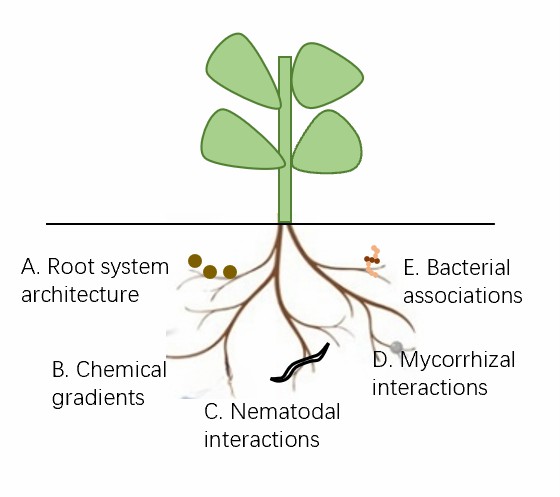Control of Plant Nematodes by Inter-Rhizosphere Bacteria
Inter-rhizosphere bacteria are isolated from plant roots with a high affinity and antagonism to plant roots, which can promote plant growth and are easy to apply in culture. They have also been studied for the biological control of plant-parasitic nematodes. Several groups have been found to be effective against nematodes, including Agrobacterium, Bacillius, Pseudomonas, Acinebacter, Chromobacterium, Enterobacter, and Serratia. Aerobic endospore-forming bacteria (mainly Bacillus spp.) and Pseudomonas spp. are among the dominant populations in the rhizosphere that can antagonize nematodes.
Lifeasible provides analysis services for the control of nematodes by inter-rhizosphere bacteria to help our customers worldwide in plant science. Our platform is equipped with cutting-edge facilities and professional experts to support research. Here, we provide various services according to customers' demands.
Analysis of the Bacillus Strains
- Numerous Bacillus strains can suppress pests and pathogens of plants and promote plant growth. Some species are pathogens of nematodes. The most thoroughly studied is probably B. thuringiensis (Bt). Bt is an ideal biocide that produces companion cell crystal proteins during spore formation that is toxic to many pathogenic insects and plant parasitic nematodes.
 Fig.1 Some rhizosphere processes in the soil.
Fig.1 Some rhizosphere processes in the soil.
- Lifeasible provides analysis services for controlling nematodes by Bacillus strains, including the isolation and toxicity analysis of Bt companion cell crystalline proteins.
- In addition, we offer services for a wide range of modes of action of rhizobacteria in soil, including regulating nematode behaviors, interfering with plant–nematode recognition, competing for essential nutrients, promoting plant growth, inducing systemic resistance, or directly antagonizing using the production of toxins, enzymes, and other metabolic products.
Analysis of the Pseudomonas Strains
- Pseudomonas strains have a wide host range and are highly adaptable to their environment. They can secrete active metabolites to inhibit the reproduction of plant pathogenic nematodes in the soil and control plant diseases while at the same time promoting plant growth in a variety of ways. They are one of the most promising classes of inter-rhizosphere bacteria for the biological control of plant parasitic nematodes.
- We offer analysis of Pseudomonas strains with inhibiting or virulent effects, including P. aeruginosa, P. fluorescens, P. chlororaphis, and P. putide. We also help to analyze multiple pathogenic mechanisms of Pseudomonas strains after interaction with nematodes, such as reduction of plant-parasitic nematode populations, antibiotic production and induction of systemic resistance, and secretion of toxins to inhibit nematode reproduction, egg hatching, and larval survival.
Lifeasible has long-term devoted to the development and application of plant science. We are pleased to use our extensive experience and advanced platform to offer satisfied service and qualified products to satisfy each demand from our customers. If you are interested in our services or have any questions, please feel free to contact us or make an online inquiry.
For research or industrial raw materials, not for personal medical use!
 Fig.1 Some rhizosphere processes in the soil.
Fig.1 Some rhizosphere processes in the soil.